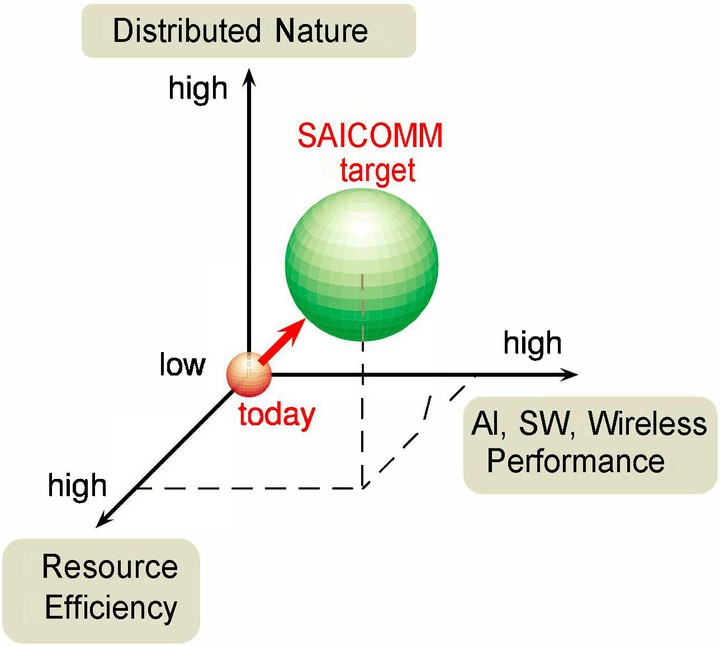SAICOM

SAICOM - Software Artificial Intelligence for Communications
Artificial Intelligence (AI) is expected to make major impacts in wireless networks and achieve the same AI successes as in robotics, computer vision, speech, and text analysis. For example, in smart cities monitored by wireless networks, AI could greatly minimize vehicular energy consumption, reduce environmental pollution, or minimize accidents. However, to achieve all of this, we would need (i) the luxury of abundant, clean, timely data, collected at a central unit where automatic software applications or software network management decisions are taken, as well as (ii) adequate computational resources across most of the wireless network units. Is this realistic?
Unfortunately, the answer is no. When we try to use AI in wireless networks, we face formidable and largely unsolved methodological and software challenges. In wireless networks, data sets of any size and quality will be produced by distributed units, which may not be able to perform state-of-the-art AI computations and may not be able to share data over networks due to software, energy, computational and bandwidth limitations, and security and privacy concerns. The state-of-the-art AI methods and software algorithms greatly stress public wireless networks. The mere use of state-of-the-art AI solutions borrowed from the fields of robotic, computer vision, or speech and text analysis, unaware of the wireless networks characteristics, will lead to inefficient implementations with mediocre performance unless we fundamentally advance AI methods and software for wireless systems.
To address such formidable advancements, SAICOM–Software Artificial Intelligence for Communications– proposes to undertake a research plan where AI, software, and wireless will be investigated in symbiosis. SAICOM focuses on the access protocols at low layers, and the services at the application layer which are particularly sensitive to the low layers performance, such as almost any mobile application, services for autonomous vehicles, smart grids, or smart city monitoring systems. Hence, SAICOM will answer one of the most pressing needs of the current technological revolution envisioned by both industry and academia. SAICOM has put together a world-class multidisciplinary (software, AI and wireless) team with complementary scientific expertise located at Chalmers, KTH, and University of Gothenburg. The project will be performed in close collaboration not only with industrial and institutional partners